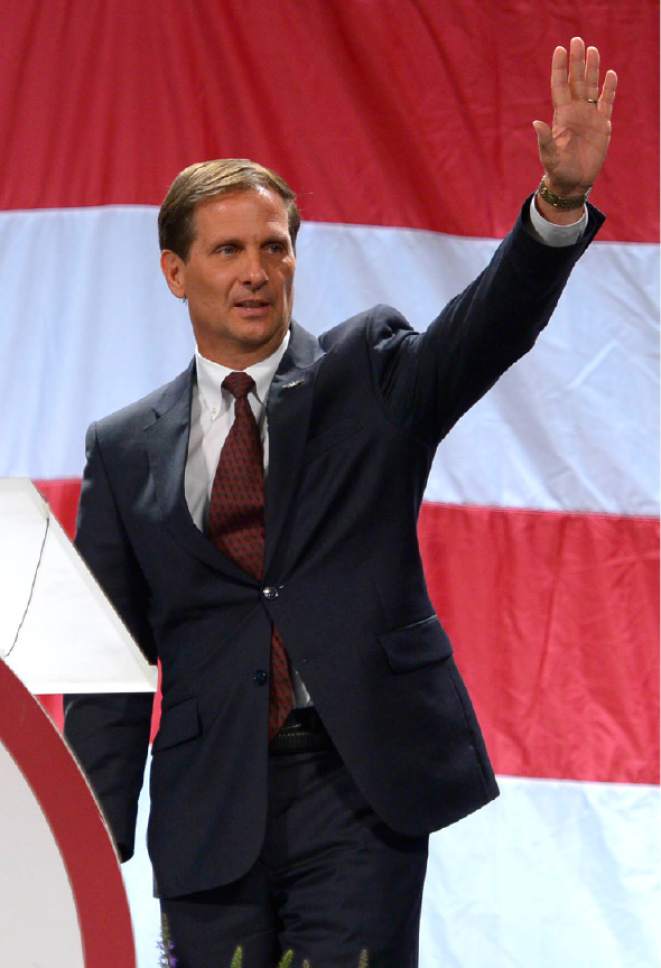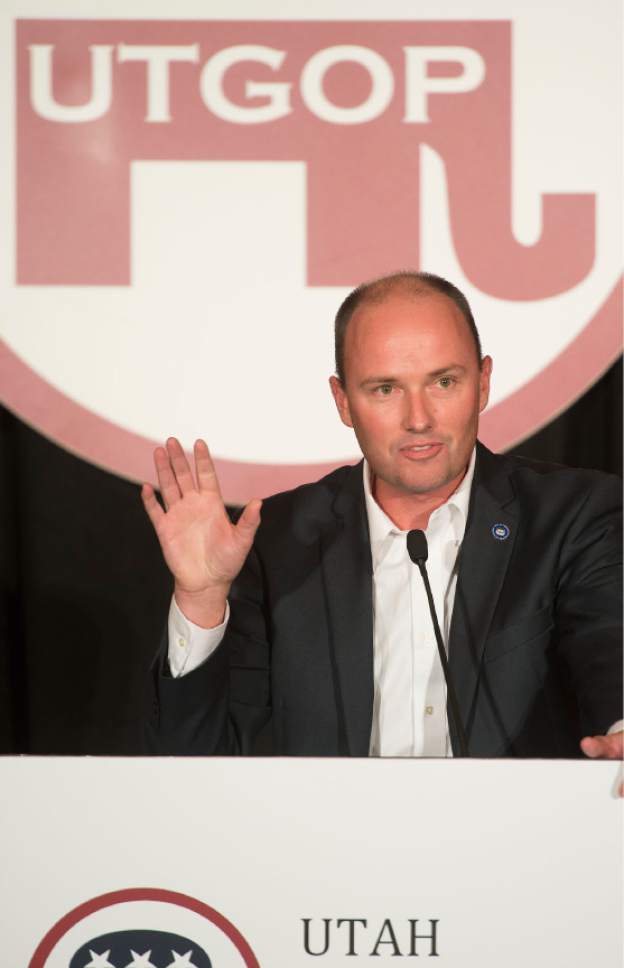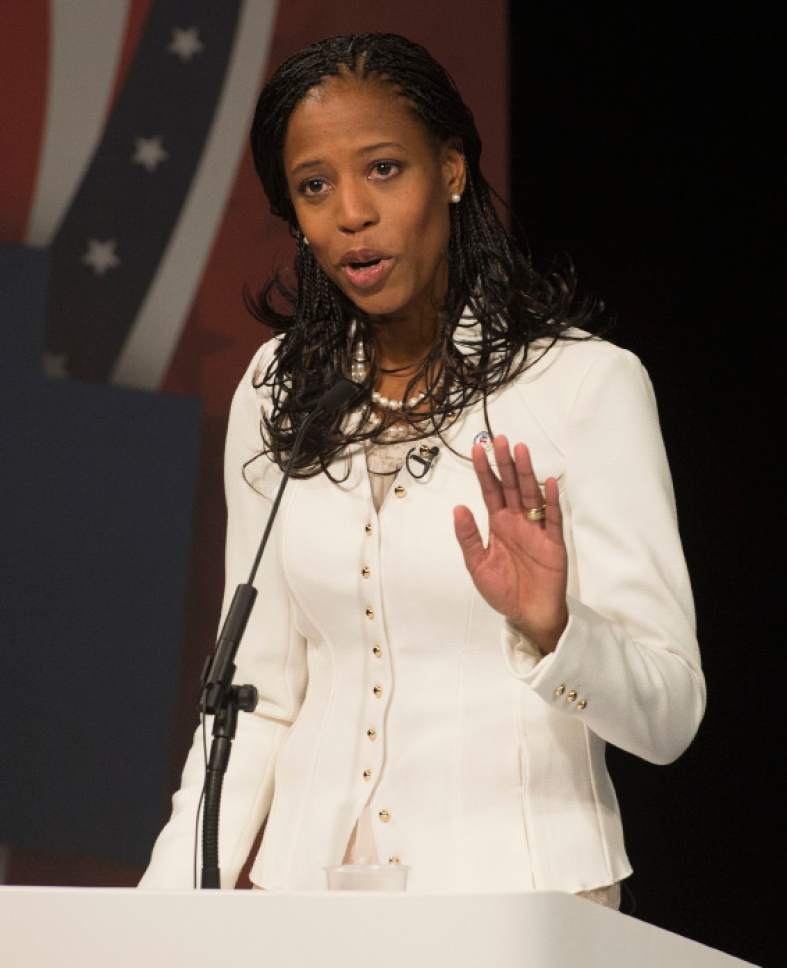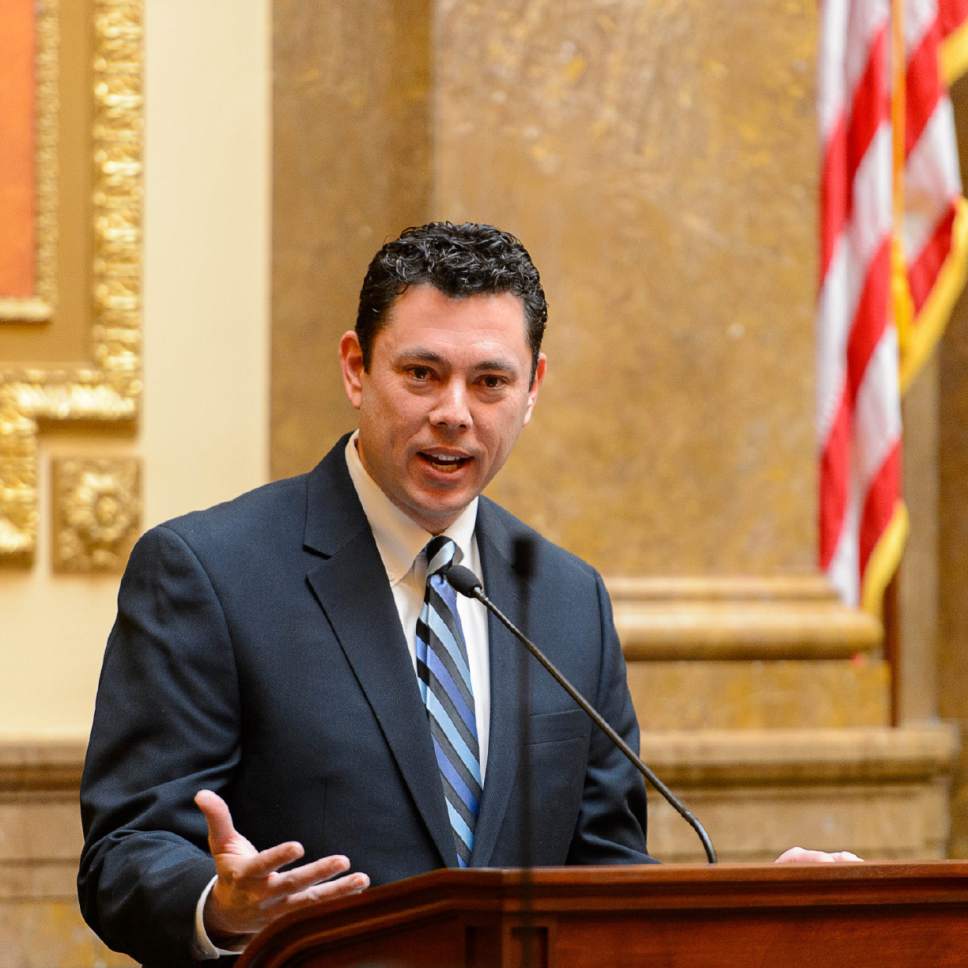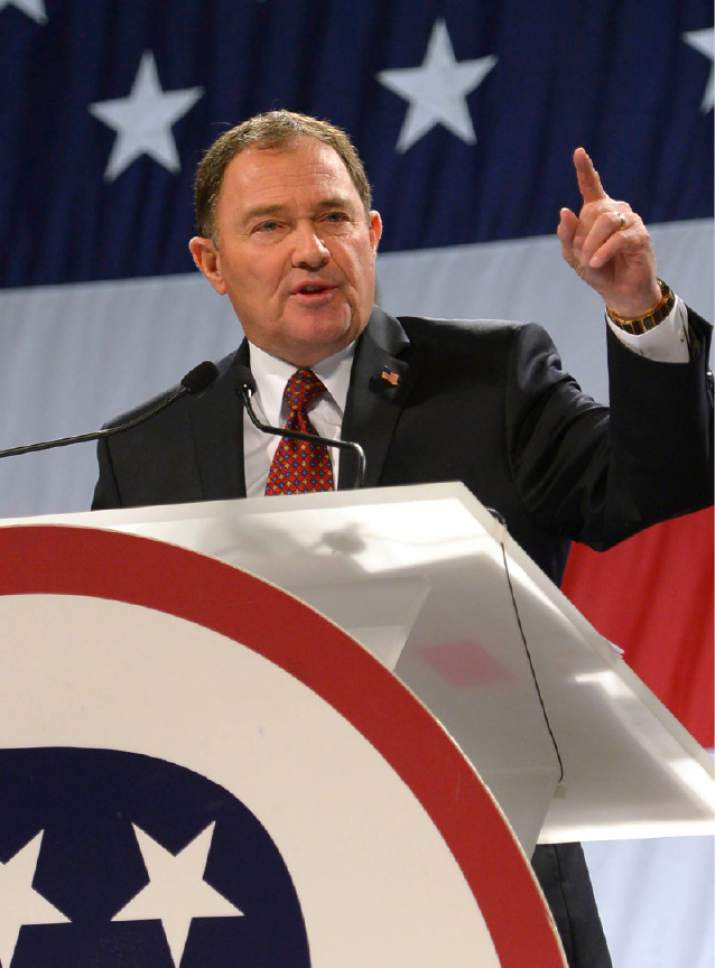This is an archived article that was published on sltrib.com in 2016, and information in the article may be outdated. It is provided only for personal research purposes and may not be reprinted.
When thousands of Republicans from around the country gather in Cleveland in July to, barring a political bombshell, anoint Donald Trump as the party's presidential nominee, some Utah delegates will be in a much less celebratory mood — if they are there at all.
"I actually haven't decided yet whether I'm going to be in Cleveland or not," said Lt. Gov. Spencer Cox, one of Utah's 40 national delegates. "I have not been supportive of Mr. Trump, and I'm not really excited to go back to a convention that's centered around him. … There's a chance I don't go."
Cox said he and Gov. Gary Herbert are focused on their June 28 primary, and the lieutenant governor likely won't decide on the convention until then.
Trump's ascendancy to GOP standard-bearer has disheartened much of Utah's delegation, many of whom, like Cox, won their delegate slot by running on the "Never Trump" slate or the "Stop Trump/Stop Hillary" ticket. Since Texas Sen. Ted Cruz soundly beat Trump in Utah, each of the state's 40 votes will go to Cruz, not that it matters at this point — Trump secured enough delegates to win the nomination Thursday.
Still, Cox's boss says he will be in Cleveland.
"I was elected a delegate, and I'm expected to go," Herbert said. "I take that responsibility seriously."
Even though there is no drama in the outcome, the governor noted he went to Tampa, Fla., and voted for Mitt Romney when he was the nominee.
For his part, Romney, Utah's most famous Republican, has said he won't go to the convention and won't vote for Trump.
"The fact that we have this kind of predetermined, that it's over with, doesn't mean you don't show up," said, Herbert, who still isn't willing to endorse Trump at this time.
He hopes to meet with the presumptive nominee before the convention and ask him what he plans to do to stop federal government mandates to states, his philosophy on choosing nominees for the Supreme Court and other issues.
"We all know some of the issues out there about his demeanor his personality and is that how he'll conduct himself as president," Herbert said. "Those are issues I think we can work around, but I want to know his positions on policy, what he plans to do on states' rights" when it comes to education, transportation and other areas.
Like Cox, Rep. Mia Love, R-Utah, won't commit to going to the convention, even though she was elected a delegate, and Trump's pending nomination is at least part of her concern.
Love, the first black Republican woman elected to Congress, has said she's not ready to endorse her party's presumptive nominee and questions some of his past statements.
In an interview with The Associated Press this week, she said: "I am not Donald Trump. And Donald Trump is not Utah."
Her campaign manager, Dave Hansen, said Love will evaluate whether her attendance can benefit Utah.
"She just hasn't made a decision on that yet," he said.
Love not only went to the 2012 convention, when she was then a first-time congressional candidate, but she also landed a coveted prime-time speaking slot, boosting her appeal nationwide and leading to a spike in campaign contributions.
Now a House member, Love is in a competitive rematch with Democrat Doug Owens.
Her three GOP House colleagues, Reps. Jason Chaffetz, Chris Stewart and Rob Bishop, also plan to skip the festivities.
Chaffetz, who was the leading vote-getter among the delegates four years ago and landed a speaking slot at the 2012 convention, said his absence is not necessarily a slight to Trump. Instead, the Utahn will be on a congressional trip to the Middle East and Eastern Europe, missing the GOP party.
"It's a good time to be productive. I also don't think they'll have many microphones in Poland," said Chaffetz, who didn't run to be a delegate this year because the presidential candidate he was backing — Florida Sen. Marco Rubio — didn't win the Republican nomination.
Similarly, Stewart said he surely would have gone if Rubio was the nominee, but now he saw no benefit to the state or his campaign.
All three intend to vote for Trump. Chaffetz said he subscribes to the "ABC" philosophy — Anybody But Clinton. As head of the House Oversight and Government Reform Committee, Chaffetz said it's his role to hold the executive branch accountable, no matter who is in charge.
"It's not my job to be a cheerleader for the president," he said.
Sen. Mike Lee, R-Utah, and his wife, Sharon, are not only national GOP delegates but also rules committee members. They nabbed the coveted spots before Trump became the last candidate standing, and the Utah senator hoped to draft rules that made it easier for Cruz, his close friend, to wrestle away the nomination.
Asked recently, Lee said he'll be at the Cleveland gathering in July, but when prodded to explain why, he paused and added only: "I was elected as a delegate, so I'll be there."
Lee and Love are the only two of Utah's six members of Congress who have yet to endorse Trump.
Salt Lake County Councilwoman Aimee Winder Newton was part of the "Never Trump" list of delegates, but she will be in Cleveland, even though she's unsure she can support the nominee.
"A lot of us hoped for a contested convention in order to stop Trump," she said. "I'm not going to support Hillary Clinton, that's for sure, so if our Republican nominee is Donald Trump, I will absolutely look long and hard at that and may come around to voting for him in November."
She said she wants to see how the campaign unfolds and what kind of candidate Trump turns out to be before she jumps on board.
"I'm upset by some of the things he's said about women and kind of his overall attitude toward women," Newton said. "We've come a long way as a country, and it's too bad our nominee is somebody who doesn't seem really up to speed on some of those women's issues, but I do think there's no perfect candidate."
Like Herbert, Newton wants to weigh Trump's approach to the high court, since the next president could hand several justices lifetime appointments.
Peter Greathouse, longtime Millard County GOP chairman and a member of Cruz's Utah leadership team, said he is no fan of Trump, but he will be in Cleveland out of a sense of duty and because the delegates will also vote on changes to the platform that will decide the party's direction in the future.
Greathouse said it remains to be seen whether he'll vote for Trump in November partly because of the candidate's "bombastic personality."
"He seems to be changing positions constantly. You never know quite where he's at on any issue," he said. "I don't like that, and I just think there's a lot better, higher-quality people who could lead the country than Mr. Trump."


